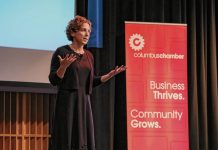According to my friend Carl Richards of BehaviorGap, we’re afflicted with “self-attribution bias,” which means we’re inclined to take all the credit when things go well, but blame outside forces when they don’t. Additionally, we have great difficulty separating skill from luck.
Howard Marks of Oaktree Capital Management periodically publishes insightful investment memos (oaktreecapital.com/insights/howard-marks-memos). “Getting Lucky” (2014) was inspired by an article he read in the Four Seasons Magazine, “In Defense of Luck” by Ed Smith.
Smith cited a tweet from Twitter founder Jack Dorsey: “Success is never accidental. No accidents, just planning; no luck, only strategy; no randomness, just perfect logic.” Spoken like a true Master of the Universe.
“It is a tempting executive summary for a seductive speech or article,” wrote Smith. “If there are no accidents, then winners, obviously, are seen in an even better light. Denying the existence of luck appeals to a fundamental human urge: to understand, and ultimately control, everything in our path. Hence the popularity of the statement, ‘you make your own luck.’”
Marks believes a multitude of factors contribute to success, some of our own doing, but many beyond our control. “There’s no doubt that hard work, planning and persistence are essential for repeated success. But even the hardest workers and best decision makers among us will fail to succeed consistently without luck.”
Regarding luck in investing, Marks believes even if an investor applies skillful analysis and is “right” about identifying an undervalued security, “it still takes a great deal of luck for their version of future events to materialize.” Complicating the matter, “the correctness of a decision can’t be judged from the outcome. Because of the randomness at work in the world and the unpredictability of the future, lots of bad decisions lead to good results, and lots of good decisions end in failure.”
It’s impossible to get it right every time, but my colleagues and I believe we improve our chances of “getting lucky” by “fishing” in less crowded/less efficiently-priced “ponds” like spin-offs, CEO changes and post-bankruptcy reorganizations.
In 2010, Buffett and Bill and Melinda Gates announced the Giving Pledge — their effort to convince the richest Americans to gift at least 50 percent of their wealth to philanthropy during their lifetimes or at death. Buffett’s letter announcing his pledge to gift 99 percent of his wealth is reprinted in full at givingpledge.org.
“My wealth has come from a combination of living in America, some lucky genes, and compound interest. My luck was accentuated by my living in a market system that sometimes produces distorted results, though overall it serves our country well. I’ve worked in an economy that rewards someone who saves the lives of others on a battlefield with a medal, rewards a great teacher with thank-you notes from parents, but rewards those who can detect the mispricing of securities with sums reaching into the billions.
“In short, fate’s distribution of long straws is wildly capricious. The reaction of my family and me to our extraordinary good fortune is not guilt, but rather gratitude.”
Richards adds, “By recognizing the role luck has played in our lives, we can go forward with just a little more humility and a little less ego. That is a great investment for long-term success.” Amen, brother.
Mickey Kim is the chief operating officer and chief compliance officer for Columbus-based investment adviser Kirr Marbach & Co. Kim also writes for the Indianapolis Business Journal. He can be reached at 812-376-9444 or [email protected].




